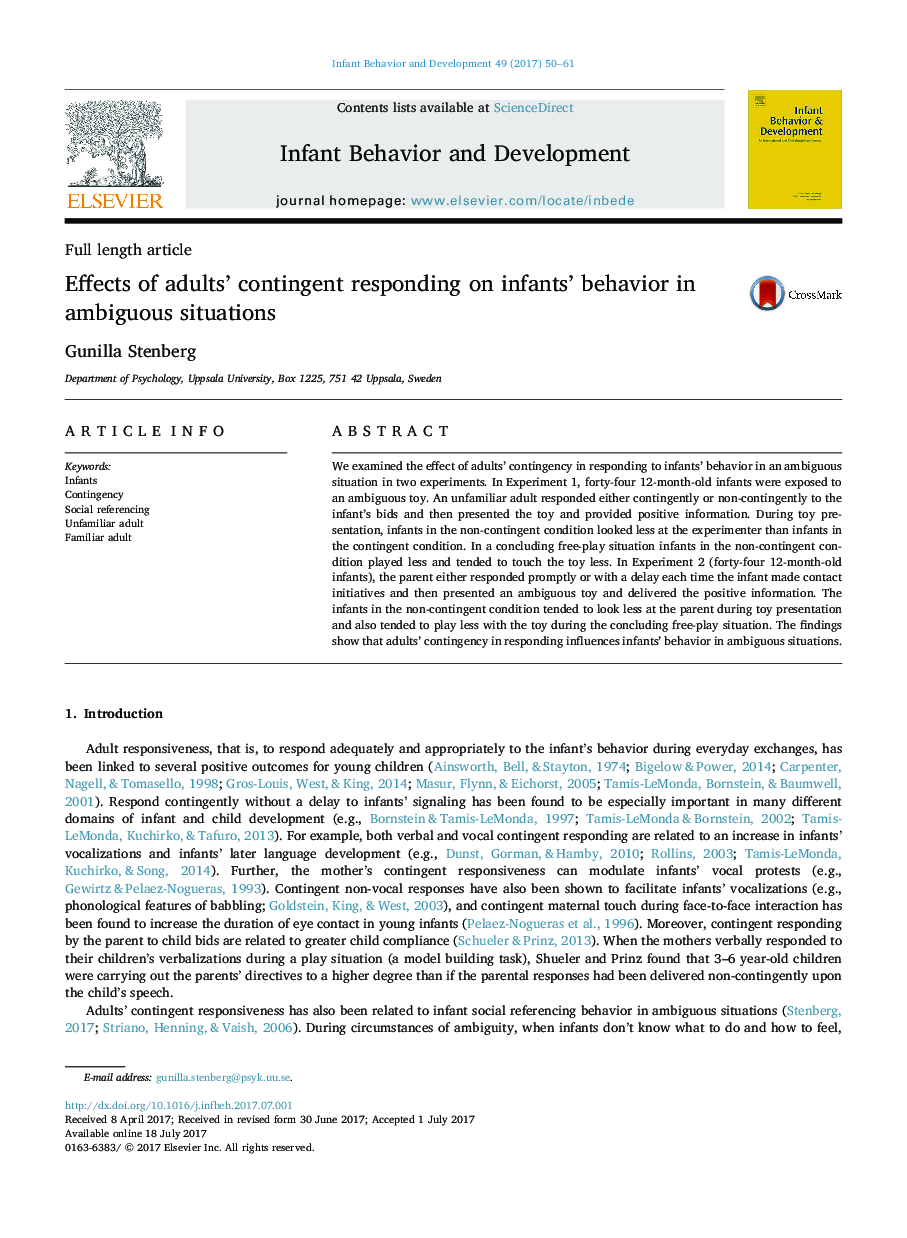| Article ID | Journal | Published Year | Pages | File Type |
|---|---|---|---|---|
| 5039753 | Infant Behavior and Development | 2017 | 12 Pages |
â¢Twelve-month-olds' reactions to adults' contingency in responding were examined in two experiments.â¢Adults' contingency in responding influence 12-month-olds' behavior in ambiguous situations.â¢Unfamiliar and familiar adults' contingency in responding influences infants' social referencing.
We examined the effect of adults' contingency in responding to infants' behavior in an ambiguous situation in two experiments. In Experiment 1, forty-four 12-month-old infants were exposed to an ambiguous toy. An unfamiliar adult responded either contingently or non-contingently to the infant's bids and then presented the toy and provided positive information. During toy presentation, infants in the non-contingent condition looked less at the experimenter than infants in the contingent condition. In a concluding free-play situation infants in the non-contingent condition played less and tended to touch the toy less. In Experiment 2 (forty-four 12-month-old infants), the parent either responded promptly or with a delay each time the infant made contact initiatives and then presented an ambiguous toy and delivered the positive information. The infants in the non-contingent condition tended to look less at the parent during toy presentation and also tended to play less with the toy during the concluding free-play situation. The findings show that adults' contingency in responding influences infants' behavior in ambiguous situations.
